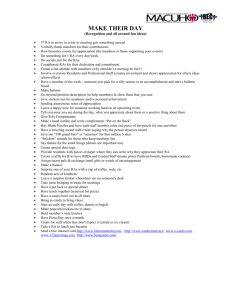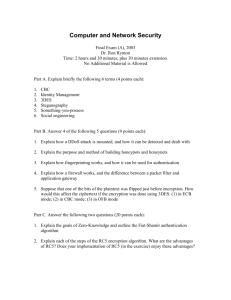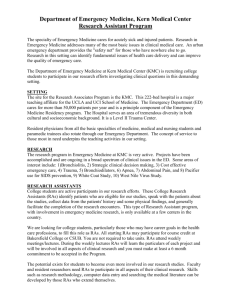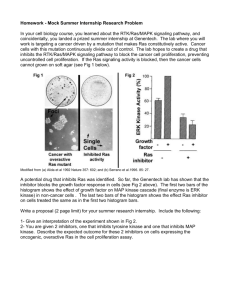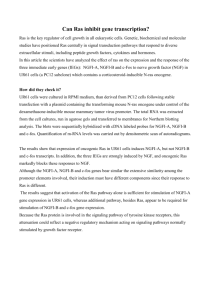Residential Assistants Training: Building a Relationship between
advertisement
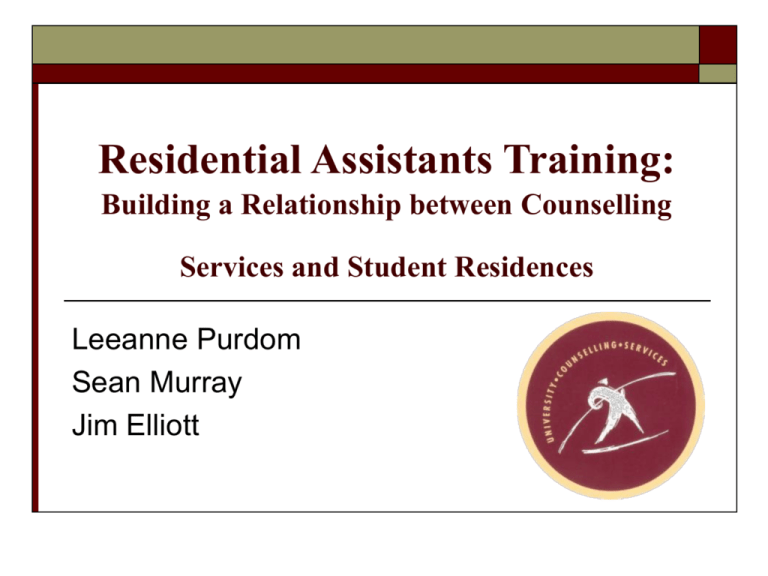
Residential Assistants Training: Building a Relationship between Counselling Services and Student Residences Leeanne Purdom Sean Murray Jim Elliott History 1991: First (1) RA was appointed 1992: 2 RA appointed male & female 1993: 5 RA appointed 1 Senior RA RA training introduced 1993/94 Dr Joe Massingham was brought over from UNE 1 RA for every 30 students History 1994-1998 Combined with ECU & Murdoch 1999-2003 Keith Cook developed the current structure 2001 UCS contributed 2 levels: Counselling support Orientation to service Critical incident support Suicide risk Chaplaincy, Disability History 2004 Michael Tunnecliffe took over the training (4 days) 2005 Continued partial involvement 2006 Shared development of training 2007 Developed and co-ordinated RA training Development of 2007 program Collaboration with returning RAs in program development Consultation with Housing Managers Counselling team member allocated to each residence Involvement of returning RAs in program delivery Program Aims Aim: To provide an opportunity for Residential Assistants to develop skills, knowledge and values that will assist them to perform their role effectively. Outcome Objectives: At the end of the course the RAs will be familiar with the requirements of their roles as RAs and the expectations from `management’ regarding performing those roles have practised facilitation skills useful for running flat meetings and solving minor disputes Outcome Objectives cont’d… have discussed how to respond to common issues for residents and the limits of their involvement be able to recognise when they are required to involve management or other agencies/people to deal with residential issues know how to obtain assistance from appropriate resources regarding residential issues have had an opportunity to work with other RAs in team activities that foster communication and connectivity have discussed the importance of self care as a student in the role of a Residential Assistant. Residential Assistants’ Leadership Program 2007 Time Monday 12th Feb 09.30 – 10.30 RAs meet with their House Resident Manager for Orientation to the Role of RAs and Introduction to the Procedures Manual Drug and Alcohol Education Relationships and Sexuality To 11.45 Security – Grant Quartermaine To 10.15 10.30 – 10.45 Morning Refreshment Break Morning Refreshment Break Morning Refreshment Break Morning Refreshment Break 10.45 – 12.00 Continue orientation with Managers and UCS Counsellors Event Organisation and Planning Start 11.00 At Risk Psychological Indicators and the Role of Counselling 10.30 Dealing with difficult behaviour - Anger - Threats - Criticism - Intoxication Michael Tunnecliffe 12.00 – 13.00 Lunch Tuesday 13th Feb Lunch Wednesday 14th Feb Lunch Thursday 15th Feb Lunch 13.00 – 14.00 Introductions Teamwork Activity Personal Safety Program Teamwork Activity 14.00 – 15.00 Outline of Program Team Building Activity Running a Flat Meeting and Dealing with Complaints Personal Safety Program contd. Michael Tunnecliffe Self Care for RAs 15.00 – 15.15 Afternoon Refreshment 15.15 – 16.45 Curtin University Resources and Support 16.45 – 17.00 Closure Afternoon Refreshment Cultural Diversity Closure Q & A with a Manager Afternoon Refreshment Critical Incident Management -Types of Incidents -Incident response -Emotional First Aid End 4.30 Michael Tunnecliffe Closure Q & A with a Manager Afternoon Refreshment Review and Evaluation Presentation of Certificates Closure Evaluation The overall program was … 1.(Poor) 2. 5% 3. 9% 4. 72% 5. 14% (Excellent) The activities in the program were … 1. 2. 5% 3. 14% 4. 62% 5. 19% The overall presentation in the program was … 1. 2. 3% 3. 16% 4. 58% 5. 23% The venue used was … 1. 2. 3. 2% 4. 30% 5. 68% The catering (food and drink) was … 1. 2. 3. 16% 4. 35% 5. 49% How confident you feel about being in the role of a Residential Assistant 1. 2. 3. 7% 4. 67% 5. 26% 2008 Program consultation Look at how to deal with group dynamic in teams, and understand what might be going on for people How to deal with inter-house activities when they lose momentum and there seems a lack of commitment Have space within program for senior RAs to explain policy changes with RAs, invite managers to second part of discussion. Look at marketing and promotion issues for events, issues like surveys of resident interest, new ideas for activities etc Focus on community building activities, for houses but also within training Would like something different in training for returning RAs Increase time for security and include Edusafe, maybe to do evacuation training 2008 Program consultation cont’d… Do issues around personal safety with aggressive and drunk people but don’t spend as much time on the physical safety component. Discuss cultural issues specifically around communal living Look at responding to issues where residents are affected by alcohol, medication or are psychotic How to encourage new residents to be interactive and participative After care for RAs who have had to deal with difficult situations What to do when policy has been contravened, particularly by other RAs Responding to problematic issues like previous point and when there are previous residents returning to the premises Problem solving when there are slack RAs in the team Benefits of the collaboration Include: Cost benefits Building relationships with housing services Improved RA skills Modelling collaborative activities between support services Cost savings In-house training has saved Housing Services a substantial external consultant’s fee Consultative process in delivery of training program In the past, the training program was constructed after discussions between housing management and the external consultant. RAs were not consulted in any active sense. Seeking RA input into the program means: The content meets their expressed needs They have a greater sense of ownership – they are not just recipients of the program The RAs are better skilled to begin their role On-going relationship with RAs Participating counsellors have maintained contact with the RAs in their designated residence This has facilitated Better and more appropriate referral of clients to UCS Occasional consultation meetings with the senior RA and other RAs A better awareness in UCS of Housing operations A better awareness in Housing of UCS practices On-going relationship with Housing staff The program has built a stronger working relationship with The director of Housing services Managers of each residence Other staff in the residences Clarity of referral processes There is more timely referral of clients to UCS The program has also raised RA awareness of other support services – leading to more appropriate and timely referral to these services Facilitating other problem-solving tasks For example – RA’s expressed concerns about their relationship with Security Services Building collaborative relationships within support services more widely Placing all support services within the University Life portfolio was intended to enable the various services to work collaboratively where possible Working together on RA training has led to other collaborative activities – e.g. restructuring the University Life web page at http://unilife.curtin.edu.au/ ; coordinated delivery of O Week etc. Question time
